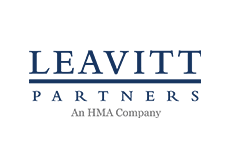This week, our In Focus section highlights the Children’s Behavioral Health (CBH) State Policy Lab, held February 7−9, in Baltimore, MD. Health Management Associates, Inc., (HMA), in partnership with national philanthropies and associations, hosted the Policy Lab, which provided an unprecedented opportunity for state cross-systems teams to conduct in-depth work toward creating an equitable behavioral health system of care for children and youth.
Background
The lack of collaboration and misaligned strategies and policies across state child welfare, behavioral health, and Medicaid has contributed to unsatisfactory outcomes for children and youth in our communities. The COVID-19 public health emergency exacerbated these issues, as the rate of mental health and substance use disorders (SUD) increased and many families experienced traumatic events during this time. Increasingly, states and local jurisdictions are exposed to threats or actual class action lawsuits based on the inadequate care of children and youth involved in the child welfare settings.
Fortunately, federal and state efforts and investments to address the youth systems of care—including schools, community, delivery systems, and community-based child placing agencies—are in motion. Though the diversity of efforts being implemented across local and state agencies are critical, these complex issues require collaboration across multiple systems, including Child Welfare, Behavioral Health authorities, Medicaid, and K-12 Education. A cross-sector strategic approach will enable comprehensive identification of gaps, policy solutions, and best practices, as well as highlight opportunities for cross-sector braided or blended funding to build a system of care that supports the needs of multi-system children, youth, and their families.
Child Behavioral Policy Lab
The current behavioral health crisis presents an opportunity to address long-term challenges and divisions and to build a truly comprehensive approach. This is why HMA sponsored the Children’s Behavioral Health State Policy Lab which convened key partners within a state and across states. The Annie E. Casey Foundation, Casey Family Programs, National Association of State Mental Health Program Directors (NASMHPD), the Child Welfare League of America (CWLA), the American Public Human Services Association (APHSA), National Association of Medicaid Directors (NAMD) and MITRE, a Children’s Behavioral Health (CBH) State Policy Lab, joined HMA in funding, organizing and providing consultation support for the meeting.
The nine participating states—Georgia, Kansas, Kentucky, Maryland, Missouri, Pennsylvania, Texas, Utah, and Wisconsin—were selected through a competitive process based on the goals and commitment of the state and the thorough analysis of gaps and opportunities, demonstration of collaborative state interagency partnerships, and engagement of youth and adults.
The participating states committed their leadership teams to join the Policy Lab in laying the foundational work of development of statewide plans that would advance their collective goal of creating a more united system of care. Participants learned about intergenerational trauma and resilience. The sessions also provided participants with data that helped provide context to the problems we are trying to solve. Presenters included Aliyah Zeien, a national child welfare policy advocate and youth ambassador, with lived experience who highlighted that 25 percent of foster youth will spend time in prison or other enforcement systems within two years of leaving the child welfare system. Her experience and reflections served as call for action to actively engage families and youth in all system planning, advocacy, and policy work.
Key areas of focus
Following these brief educational sessions, each state had substantial “team time” to develop a road map and set of next steps for continuing their work after the Policy Lab. Expert facilitators guided state teams through discussions on three key issues:
- Service array. State teams were challenged to define their array of services and develop collective agreements on how to develop enhanced treatment options for children and their families. With an emphasis on building a full continuum of care with community-based supports and fewer children in residential facilities, each team considered challenges such as eligibility, access, and workforce. Prevention, diversion, and engagement of people with lived experience to help with system development were common commitments in state action teams.
- Financing. The teams considered their statutory authority, funding streams, funding partners, contract vehicles, and financing mechanisms. They also worked on ideas for blending and braiding funding, with a focus on Medicaid and leveraging collective opportunities to develop staff and contractual resources.
- Governance. State teams worked through difficult conversations, including how to measure success, how to manage accountability and monitoring, how to collaboratively design services and case practice, while meaningfully sharing data and creating interoperability within their systems while respecting confidentiality and privacy concerns.
What’s Next
Since the Policy Lab program, most participating states have embarked on next steps identified during the workshop, such as vetting their plans with state leadership, creating an ongoing team for implementation, and identifying community partners. HMA and HMA Companies, including Leavitt Partners, are collaborating with our Policy Lab partners and the state agencies to further develop these plans and prepare for implementations that rethink our approach to services for youth and their families.
For more information about the Policy Lab and follow-on work, please contact Uma Ahluwalia ([email protected]), Christina Altmayer ([email protected]), Jon Rubin ([email protected]), and Sarah Scholle ([email protected]).



